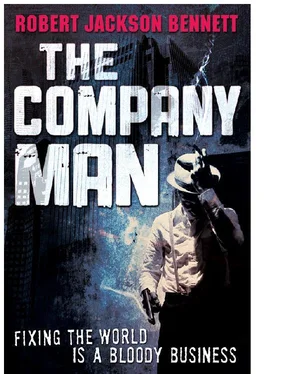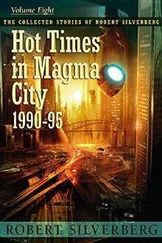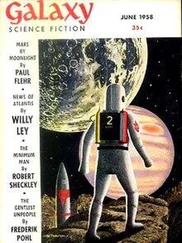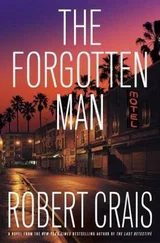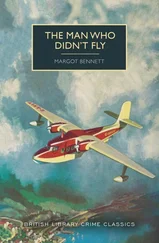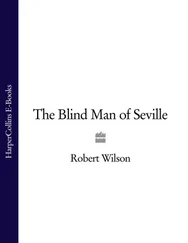Robert Bennett - The Company Man
Здесь есть возможность читать онлайн «Robert Bennett - The Company Man» весь текст электронной книги совершенно бесплатно (целиком полную версию без сокращений). В некоторых случаях можно слушать аудио, скачать через торрент в формате fb2 и присутствует краткое содержание. Жанр: Триллер, на английском языке. Описание произведения, (предисловие) а так же отзывы посетителей доступны на портале библиотеки ЛибКат.
- Название:The Company Man
- Автор:
- Жанр:
- Год:неизвестен
- ISBN:нет данных
- Рейтинг книги:3 / 5. Голосов: 1
-
Избранное:Добавить в избранное
- Отзывы:
-
Ваша оценка:
- 60
- 1
- 2
- 3
- 4
- 5
The Company Man: краткое содержание, описание и аннотация
Предлагаем к чтению аннотацию, описание, краткое содержание или предисловие (зависит от того, что написал сам автор книги «The Company Man»). Если вы не нашли необходимую информацию о книге — напишите в комментариях, мы постараемся отыскать её.
The Company Man — читать онлайн бесплатно полную книгу (весь текст) целиком
Ниже представлен текст книги, разбитый по страницам. Система сохранения места последней прочитанной страницы, позволяет с удобством читать онлайн бесплатно книгу «The Company Man», без необходимости каждый раз заново искать на чём Вы остановились. Поставьте закладку, и сможете в любой момент перейти на страницу, на которой закончили чтение.
Интервал:
Закладка:
“Yeah,” said Garvey. “Sometimes I feel that way, too.”
He dropped her off at her apartment. She stood below the awning and turned to look at him. “Thank you for the ride,” she said.
“Not a problem. Sometimes I need an excuse to see the nice parts of town, you know?”
Samantha laughed. “I suppose.”
“Sleep well,” he said.
“I will.”
He drove away. She stood and watched as the headlights faded and disappeared into the night.
CHAPTER FOURTEEN
The story of the murders spread quickly. The southeastern areas shouted it first and then it leaked to the outer districts. It was a steady build, like a storm piling clouds up on the mountains. When it had finally gathered enough momentum the rumble became a scream and the city filled up with wild questions.
The mystery and vagueness of the murders brought the police into question immediately. Either they were fools for not knowing enough or crooked for keeping information repressed. Badges were bought with money, everyone knew, and it didn’t matter where. Down in the Docks where brothels and dens paid to keep the patrols strolling, or up in Newton and Westbank where the police kept only the laws the locals approved of. And McNaughton men were gods to the police, that everyone agreed. The very name became an even dirtier word in Dockland and the Shanties in the wake of the Bridgedale trolley. The overseers at McNaughton were untried war criminals in a city where the war had not yet begun. Surely they had somehow engineered this, everyone said. After all, hadn’t they been the architects of the trolley lines? Could any trolley line be trusted, now that they could be turned into slaughterhouses the second anyone entered them?
McNaughton’s Bridgedale Inquiry seemed to die at birth. Several times a day Samantha was handed a list of names, locations, and dates, and sometimes she accompanied Hayes to the interviews and sometimes he went alone. On the days when she went with him each hour was a chain of enormous blank facilities honeycombed with tiny rooms, filled with silent, sullen people who answered questions with questions. The company had gone frigid and suspicious in the aftermath. Most of the time Samantha stayed either on her feet, running between Hayes and Brightly or Hayes and Evans, or buried up to her neck in research. She logged hours in the company’s Records floor, a dark, labyrinthine cross-section of the Nail that seemed to be mostly locks and doors. Samantha was granted one of the highest-clearance light keys for this work, and she soon learned that Brightly and Evans were logging its use, matching the daily tally with the number of records she pulled. It was unnerving and exhausting work for her, especially under such scrutiny. She prepared the most bare-bones accounts for each of Hayes’s interview subjects, just enough for him to be ready. He sat with most of them for hours and caught no whiff of deceit. Only terror and anxiety. To try and prepare more would have been a waste of time, he said.
Garvey did not fare much better. As he had suspected, he and Morris were appointed to the detail, with Morris working as the primary detective. Morris was a relic, a supporter of the fine old days when effective police work usually meant beating confessions out of whoever seemed most suspicious. They were usually foreign or black. He was a towering man with a puffy, Welsh face and beady, furious eyes. Ironically enough, he was also a devout Christian who refused to tolerate any foul language, which turned any conversation with Garvey into short, clipped sentences that barely made sense.
Morris’s approach to the murders was similar to McNaughton’s: they looked for extremists, both religious and philosophical, a term Morris and Lieutenant Collins interpreted as referring to all socialists and unioners. But if Hayes met a brick wall it was nothing like what Morris met. Whole neighborhoods of people stayed dead silent on the subject of unions, and especially Mickey Tazz.
Mickey Tazz, the people murmured to each other. Tazz will set us right. Tazz will set everything right. The working-class messiah, suited up in overalls and brogans. Out there in the slums somewhere, and strangely silent.
Garvey had better luck with one of Walton’s ex-girlfriends. When she came in to view the body he sat with her in the Central’s lobby, passing her cigarettes and sandwiches. Eventually he asked her about the tattoo.
“Why?” she asked.
“Just idle curiosity. They all had them.”
“Yeah. Mikey and Frank and them all got them.” She shook her head. “Idiots. All the guys at the Third Ring. It was like they were part of a gang. Said McNaughton could never flush them out.”
“Flush them out?”
“From the lines. Pay kept dropping and they kept firing people, but Frank and them had been working there for years and said they’d be the fly in the ointment. The sand caught in the gears. Said they’d never leave. It was a guy thing. A stupid thing.”
Then he showed her the picture of his canal John Doe. She did not know him. Another unknown body, falling through the cracks.
Garvey then compiled a list of things he’d found in the trolley and began trying to account for each of them. Most of them seemed random. A set of keys. A ball of yarn. A medallion. A pair of scissor handles and a book collection, lost by God knows who. Giving up, he returned to the one thing he’d found during his trawl through the tunnels: the little white garbage can. He sat it on his desk and stared at it, chin in hand, as if they were opponents in a chess game. He turned it around in his hands, feeling its battered indentations. Then he realized something.
He returned to the Third Ring Pub, but this time did not enter. Instead he took the garbage can and matched it to the ones found outside the diner across the street. When he asked the diner’s employees about it they identified it as the one that usually stood outside the front door but had gone missing, though they were unsure when. Garvey went and stood at the front door of the diner, looked back at the pub, and smoked and thought. Then he drove to where the trolley was being held in a police impound lot, looked at the broken door of the trolley, and held the garbage can up to its crumpled front. The two fit.
“So what the hell does that tell us?” asked Collins when Garvey told him and Morris.
“It shows us that, whoever it was, they busted into the trolley with a garbage can, of all things,” Garvey said. “One taken from right across the street from the bar the unioners had left. Which means that the assailant had been watching them just minutes before the murders. Which suggests that this all was… well, improvised, at least as far as I can tell.”
“How does that match with the deafness and the four minutes and all?” asked Morris.
“It doesn’t. Not yet. I’m explaining what I can and taking the stuff I don’t know and leaving it hanging. For now.”
“Great,” said Morris. “Just beautiful.”
“It’s all I have,” said Garvey. He shook his head. “All I could find.”
Collins nodded, chewing his pipe to the point of dissolution. “What do we have on the street level?”
“Not much,” said Morris. “No one likes to talk about unions. Especially to a cop. There’s a few boys I know who are reliable snitches but they don’t know anything. But we’re working it. Slowly and surely, we’re working it.”
Afterward Garvey went down to the morgue, which had become chaotic in the wake of the murders. Gibson and his attendants were working triple shifts to handle the incoming family of the Bridgedale. When Garvey arrived he found three corpses laid out on the floor rather than in the cabinets. He gave Gibson a disapproving look.
Читать дальшеИнтервал:
Закладка:
Похожие книги на «The Company Man»
Представляем Вашему вниманию похожие книги на «The Company Man» списком для выбора. Мы отобрали схожую по названию и смыслу литературу в надежде предоставить читателям больше вариантов отыскать новые, интересные, ещё непрочитанные произведения.
Обсуждение, отзывы о книге «The Company Man» и просто собственные мнения читателей. Оставьте ваши комментарии, напишите, что Вы думаете о произведении, его смысле или главных героях. Укажите что конкретно понравилось, а что нет, и почему Вы так считаете.
